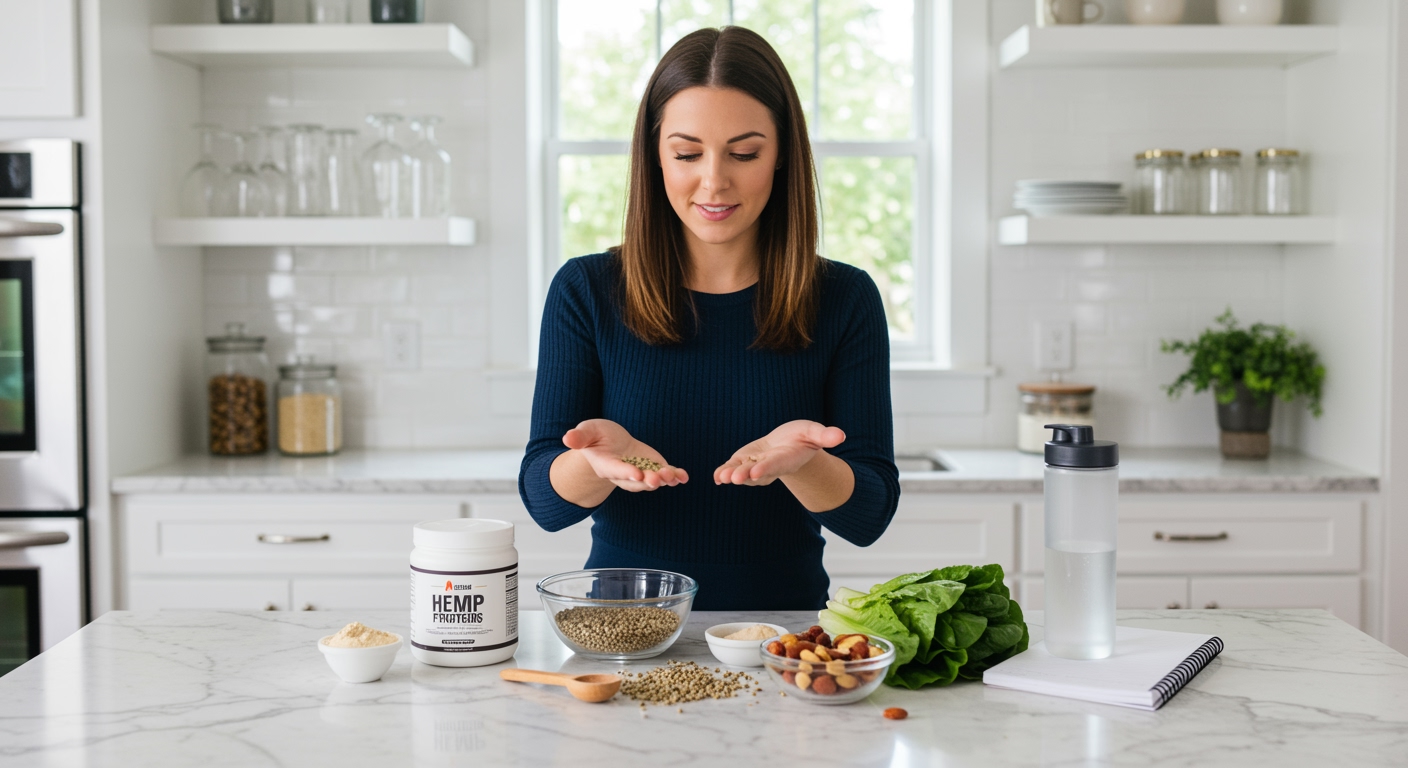✪ Key Takeaway: PCOS women can eat pineapple safely in moderate portions when paired with protein or healthy fats to minimize blood sugar spikes.
Introduction
You reach for that juicy pineapple slice and suddenly freeze, wondering if this tropical treat will mess with your PCOS symptoms.
Many women with PCOS avoid pineapple completely because they fear it will spike their blood sugar and worsen insulin resistance.
Hi, I’m Abdur, your nutrition coach, and today I’m going to explain exactly how pineapple affects PCOS and share the smart strategies that let you enjoy this nutritious fruit safely.
Does Pineapple Spike Blood Sugar In PCOS Women?
Pineapple has a moderate glycemic index of 59, which means it can raise blood sugar levels faster than low-GI fruits.
However, the glycemic load of a typical serving is only 7, which is considered low and manageable for most people.
Women with PCOS often have insulin resistance, making their bodies less efficient at processing sugars from any source.
This means pineapple can cause a more pronounced blood sugar response in PCOS women compared to those without the condition.
The key lies in portion control and timing rather than complete avoidance.
A half-cup serving of fresh pineapple contains about 8 grams of natural sugars, which is reasonable when consumed mindfully.
✪ Pro Tip: Eat pineapple with a handful of nuts or Greek yogurt to slow sugar absorption and prevent blood sugar spikes.
What Nutrients Does Pineapple Provide For PCOS Management?
Pineapple contains bromelain, a powerful enzyme that reduces inflammation throughout your body.
Chronic inflammation is a major driver of PCOS symptoms, making bromelain particularly beneficial for women with this condition.
This tropical fruit provides vitamin C, which supports your immune system and helps your body produce collagen for healthy skin.
Many PCOS women struggle with acne and skin issues due to hormonal imbalances, so adequate vitamin C intake becomes crucial.
Pineapple also contains manganese, a trace mineral that supports bone health and helps regulate blood sugar levels.
The fiber content in fresh pineapple aids digestion and helps you feel full longer, which can support weight management goals.
✪ Fact: Fresh pineapple contains significantly more bromelain than canned varieties, which lose most of this beneficial enzyme during processing.
How Should PCOS Women Time Their Pineapple Consumption?
The best time to eat pineapple is after a workout when your muscles are primed to absorb glucose efficiently.
Exercise increases insulin sensitivity temporarily, allowing your body to handle the natural sugars in pineapple more effectively.
Eating pineapple on an empty stomach first thing in the morning can cause rapid blood sugar spikes in insulin-resistant individuals.
Instead, include pineapple as part of a balanced meal that contains protein, healthy fats, and complex carbohydrates.
Late evening consumption should be avoided because your insulin sensitivity naturally decreases as the day progresses.
If you experience blood sugar crashes or energy dips after eating pineapple, reduce your portion size or pair it with more protein.
✪ Note: Monitor your blood sugar response to pineapple for the first few times to understand how your body reacts individually.
Can Pineapple Help With PCOS-Related Inflammation?
The bromelain enzyme in pineapple has been shown to reduce inflammatory markers in multiple scientific studies.
PCOS creates a state of chronic low-grade inflammation that contributes to insulin resistance, weight gain, and hormonal imbalances.
Regular consumption of anti-inflammatory foods like pineapple can help break this cycle and improve overall PCOS symptoms.
Bromelain also supports digestive health by breaking down proteins more efficiently, which many PCOS women find beneficial.
The antioxidants in pineapple help neutralize free radicals that damage cells and worsen inflammatory processes.
However, the anti-inflammatory benefits work best when pineapple is part of an overall anti-inflammatory diet rather than consumed in isolation.
✪ Pro Tip: Combine pineapple with other anti-inflammatory foods like berries, leafy greens, and fatty fish for maximum benefits.
What Are The Best Portion Sizes For PCOS Women?
A safe starting portion for PCOS women is one-half cup of fresh pineapple chunks, which contains about 40 calories.
This amount provides beneficial nutrients while keeping the sugar content manageable for most insulin-resistant individuals.
You can gradually increase to three-quarters of a cup if your blood sugar remains stable after eating.
Avoid dried pineapple completely as it concentrates the sugars and often contains added sweeteners that can spike blood glucose rapidly.
Fresh pineapple is always preferable to canned varieties, which typically contain added syrups and lose beneficial enzymes during processing.
If you choose canned pineapple occasionally, select versions packed in water rather than syrup to minimize added sugars.
✪ Fact: One cup of fresh pineapple contains the same amount of sugar as a small apple, making portion awareness crucial for blood sugar management.
The Bottom Line
PCOS women can absolutely enjoy pineapple as part of a balanced diet when they practice mindful portion control and smart timing strategies.
Health is not about perfection, but about making informed choices that support your long-term wellbeing, and pineapple can be one of those positive choices when consumed thoughtfully.
I would love to hear about your experiences with pineapple and PCOS management, so please share your questions, success stories, or concerns in the comments below.
References
At NutritionCrown, we use quality and credible sources to ensure our content is accurate and trustworthy. Below are the sources referenced in writing this article:
- Apollo247: Pineapple Benefits for PCOD Management
- PCOS Nutrition: 8 Surprisingly High GI Foods
- Be Balanced Nutrition: Best Fruits for PCOS
- PCOS Meal Planner: Pineapple and PCOS





